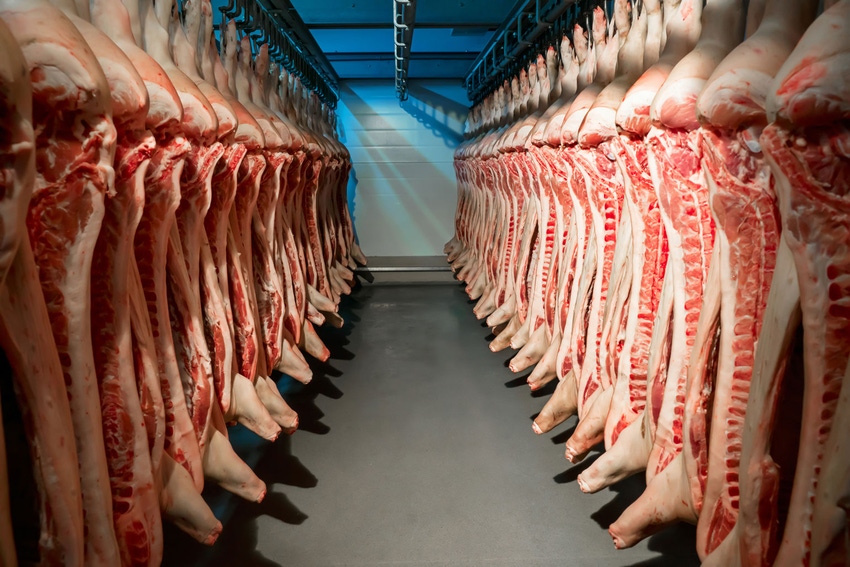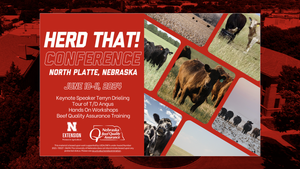Brazil’s Batista brothers are out of jail and worth $6 billion
The Batista saga is steeped in proximity to power. Their endgame, as many JBS executives have stated during the years, is listing the meat giant in the U.S.

By Felipe Marques and James Attwood
Just under four years ago, brothers Joesley and Wesley Batista were in Brazilian prison cells with concrete bunk beds, their multibillion-dollar meat empire near collapse in one of the world’s biggest corporate corruption scandals.
Today, they’re not only free men but their company, JBS, is worth three times what it was then, operates in 20 countries and controls a quarter of U.S. beef processing. The brothers, worth $5.8 billion, hold stakes in companies with $28 billion in assets, towering over all other meat barons.
Their Lazarus-like revival comes partly from the one-two punch of pandemic food prices -- short supply, soaring demand -- that is making many in food rich right now. But it’s more than that. It’s a testament to bare-knuckles political deal making, ruthless efficiency (like using every inch of a carcass) while pivoting to plant-based alternatives and eyeing a U.S. listing.
“JBS is a prime example of the Brazilian way of doing business,” said Luis Andre Azevedo, a professor at Fundacao Getulio Vargas’s law school, pointing to the company’s deep, longstanding political connections.
The real trick has been not only mining those connections -- but betraying them. In 2017, the brothers turned on a network of politicians they’d spent years cultivating through legal and off-the-books donations. What followed was a scandal so widespread that it led to “Joesley Day,” one of the worst market routs in Brazil’s history.
Last month, when JBS was targeted by a large-scale cyberattack, it paid an $11-million ransom in Bitcoin, putting an end to severe meatpacking disruptions in North America and Australia.
The Batista saga is steeped in proximity to power. Patriarch Jose Batista Sobrinho, 87, founded the company that bears his initials in 1953 and soon settled in the still-to-be-built city of Brasilia, selling meat to the construction workers erecting the new national capital. His sons soon joined him.
It was 49-year-old Joesley and Wesley, 51, who turned it into a global meat empire during a decade-long, $20 billion acquisition spree financed with stock and debt, with the help of Brazil’s state-owned development bank. They targeted poorly-managed companies around the globe and turned them around.
“It’s a combination of being very good in execution and good acquisitions that allowed them to diversify the business and generate good returns,“ said Leandro Fontanesi, head of food and agribusiness coverage at Bradesco BBI.
It’s also been about cold-blooded choices.
In 2017, Brazil was trying to root out corruption, jailing politicians and businessmen. Joesley and Wesley were knee-deep in it and had a choice to make.
They described to prosecutors a network of bribes encompassing more than 1,800 politicians who allegedly eased access to government-owned banks and pension funds at a time when Brazilian authorities were shelling out cheap money to multiple companies hoping to create “national champions.” The turmoil that followed nearly toppled a president.
The brothers, who declined to be interviewed for this article, were forced out of day-to-day operations, while the family’s holding company, J&F, agreed to pay 10.3 billion reais ($2 billion) to Brazilian authorities over 25 years, followed by a similar deal with the U.S. Department of Justice last year for $256 million.
To appease creditors, they shed 12 billion reais in assets -- including a flip-flop maker, a dairy producer and businesses in Uruguay and Paraguay, in a complex debt restructuring that could have destroyed the company. They also had to convince cattle ranchers to wait until they had the cash to pay them while persuading key executives, like current global chief Gilberto Tomazoni, to stick with the firm.
When all was said and done, the Batista family kept control of its prized meat packer.
Wesley and Joesley never retook the reins of the business and disappeared from public life. Other family members are stepping in. Chief among them is Wesley Batista Filho, 30, who now handles key units at JBS and is being groomed for a top slot. In keeping with family tradition, he started out working in animal slaughter, learning every part of the carcass.
Of course, the Batistas aren’t the only meatpackers doing well. The pandemic has been disruptive and lucrative for many others. Outbreaks of the virus among meatpacking staff sent animal protein prices surging as consumers clamored for supplies, while shutdowns spurred an unprecedented glut of livestock that squeezed ranchers and pushed down costs for slaughterhouses.
JBS has beaten most peers with a 69% surge in earnings before items in the past year, according to data compiled by Bloomberg. Brazilian rival Marfrig Global Foods has also outperformed with a 38% jump. Marfrig’s owner, Marcos Molina, agreed, without acknowledging guilt, to pay an indemnity in a bribery probe back in 2018.
Apart from taking advantage of the present, the JBS strategy is to anticipate the future.
“JBS and Tyson are in the process of reinventing themselves as protein companies rather than just meat companies,” said Jennifer Bartashus, a senior analyst for packaged food & retail staples at Bloomberg Intelligence. “They are engaging more and more in plant-based alternatives.”
That has meant going back to serial-acquisition mode, snapping up smaller companies all over the globe, including a German firm that makes plant-based meat substitutes.
Their endgame, as many JBS executives have stated during the years, is listing the meat giant in the U.S. Its New York-listed rival Tyson Foods is worth almost double, even though JBS outranks it in nearly other metric.
To appease governance concerns, the Batistas have added several senior compliance and control positions to their flagship JBS since 2017, said Flavia Bedran, credit analyst at S&P Ratings. But there’s one key change they’ve yet to address: The board is still made up mostly of family members and executives with ties to JBS, she says.
They are also reckoning with criticism by environmental activists who say they’re not doing enough to eliminate deforestation. JBS has vowed to invest $1 billion over the next decade to cut carbon emissions and implement other initiatives, while committing to tracking more effectively the origin of the cattle it buys.
“So they are taking the right steps to improve the perception to investors and I think the listing will also help,” said Bradesco’s Fontanesi. “It will be perceived as another positive step toward being more transparent, better governance.”
It may not go smoothly.
This year the Batistas tried to take public in the U.S. a fintech side bet the family made in 2015. The transaction, in which they sought an $8-billion valuation for their payments firm PicS Ltd, was scrapped for now, according to people familiar with it. Investors demanded a steeper discount, the people said, asking not to be named because the talks aren’t public.
After giving up on the IPO, the family has pledged to invest 3 billion reais in the firm, known as PicPay, out of their own pocket until 2023, with plans to resume the IPO then, a person familiar said. A representative for PicPay, which is run by another Batista family member, Jose Antonio Batista, confirmed the transaction had been postponed without adding further details.
Still, a recent industrywide chicken price-fixing scandal in the U.S. shows that investors tend to stay focused on the main product rather than on side deals or past turmoil, argues Bloomberg Intelligence’s Bartashus.
“In the meat industry, people tend to move on from that,” she observed.
--With assistance from Gerson Freitas Jr..
© 2021 Bloomberg L.P.
About the Author(s)
You May Also Like


.png?width=300&auto=webp&quality=80&disable=upscale)
